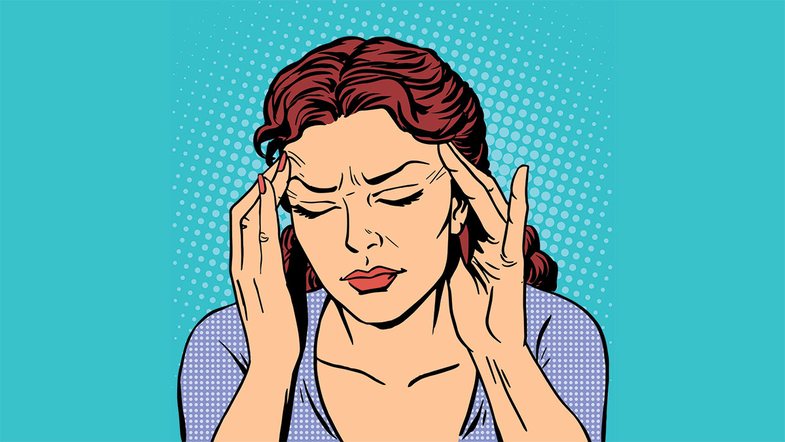
The brain is an organ that gets sick like everyone else. Depression and anxiety are brain diseases and there is nothing to be ashamed of. We have to look after every other organ.
The following seven symptoms are body warnings to you. Be careful because if you catch them in time, all mental illnesses are easy to treat with the help of a psychologist or psychiatrist.
1. It looks like your heart will explode
Heart palpitacons are the most common symptom of anxiety and are most easily noticed if you are feeling stressed.
2. The skin is not as usual
Along with heart palpitations comes sweaty skin or strange itching. It usually happens when you are in a fight-or-flight situation, after a stressful and intimidating situation.
Clarification: Fight-or-flight is referred to as the physiological response that occurs after a violent (even verbal), attack (even psychological) event or threat to life.
3. Irritation of solvent apartheid
The fight-or-flight condition promotes the release of adrenaline into the body, slowing or completely stopping digestion. In this way, all of the body's energy focuses on coping with the risk. If you are in stress all the time, you will notice it in your stomach or intestine.
4. Constant headaches
Like the stomach, headaches also become chronic after a long period of stress. It's a well-established link between depression, anxiety, and headaches.
5. You're always tired
When your mind is tired all the time, so will your body. Think of your mind as a dish. When it is full of stress and worry, there is no room for other productive things. Chronic debulking often turns into depression or anxiety.
6. You can't focus
During the fight-or-flight situation, the brain can't think analytically, though that sounds pointless. You will not be able to focus and channel your energy into a complex, or even simple task.
7. You are awake all night
It is called hyperarousal, being active and restless all the time. If you find yourself awake and restless late at night, maybe it's time to take some time off and take care of your mental health.
First published December 8, 2017





